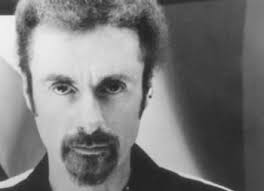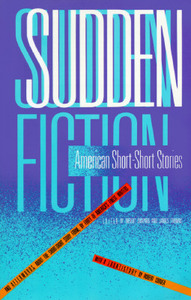Take a photo of a barcode or cover
This collection is worth a look if only for the fact that it’s the first collection of “Flash Fiction” released to the public, before the term “Flash Fiction” came to describe these ultra short stories (all are between 500 and 1,500 words). In terms of the 70 stories, there are a lot of hits and a lot of misses, but that iss to be expected in a genre attempting to get its wings. Some really good ones are:
• “Even Greenland” by Barry Hannah
• “Reunion” by John Cheever
• “Sunday in the Park” by Bel Kaufman
• “A Fable” by Robert Fox
• “Thank You, M’am” by Langston Hughes
• “Popular Mechanics” by Raymond Carver
• “The Hit Man” by T. C. Boyle
• “I See You Never” by Ray Bradbury
• “The Bank Robbery” by Stephen Schutzman
• “Tent Worms” by Tennessee Williams
• “Sitting” by H. E. Francis
• “Sunday at the Zoo” by Stuart Dybek
• “Noel” by Michael Plemmons
• “The Personal Touch” by Chet Williamson
• “The Visitation” by Tom Whalen
• “Tickits” by Paul Milenski
• “Any Minute Mom Should Come Blasting Through the Door” by David Ordan
• “Sleepy Time Gal” by Gary Gildner
• “A Lost Grave” by Bernard Malamud
All of the stories are simply snapshots: a few characters, a vague setting, no sense of resolution. Because of this, I find that they tend to stick in my mind better than much longer stories. More than a couple of the ones I listed above have already been re-read several times because of the magic they exude. Authors here are able to be explicit while being implicit, and this paradox works wonders. Read “Popular Mechanics” by Raymond Carver and try not to cringe, even though the story is overwhelmingly vague.
Also worth a look is the extensive index of the author comments on this burgeoning form.
The book took me a little longer than usual, which is odd considering the stories are so short. Unfortunately, the more boring stories tend to arrive in a string, but from a literary standpoint, none are worth skipping. Also, the really good stories force you to slow down, take your time, and savor what little is there.
• “Even Greenland” by Barry Hannah
• “Reunion” by John Cheever
• “Sunday in the Park” by Bel Kaufman
• “A Fable” by Robert Fox
• “Thank You, M’am” by Langston Hughes
• “Popular Mechanics” by Raymond Carver
• “The Hit Man” by T. C. Boyle
• “I See You Never” by Ray Bradbury
• “The Bank Robbery” by Stephen Schutzman
• “Tent Worms” by Tennessee Williams
• “Sitting” by H. E. Francis
• “Sunday at the Zoo” by Stuart Dybek
• “Noel” by Michael Plemmons
• “The Personal Touch” by Chet Williamson
• “The Visitation” by Tom Whalen
• “Tickits” by Paul Milenski
• “Any Minute Mom Should Come Blasting Through the Door” by David Ordan
• “Sleepy Time Gal” by Gary Gildner
• “A Lost Grave” by Bernard Malamud
All of the stories are simply snapshots: a few characters, a vague setting, no sense of resolution. Because of this, I find that they tend to stick in my mind better than much longer stories. More than a couple of the ones I listed above have already been re-read several times because of the magic they exude. Authors here are able to be explicit while being implicit, and this paradox works wonders. Read “Popular Mechanics” by Raymond Carver and try not to cringe, even though the story is overwhelmingly vague.
Also worth a look is the extensive index of the author comments on this burgeoning form.
The book took me a little longer than usual, which is odd considering the stories are so short. Unfortunately, the more boring stories tend to arrive in a string, but from a literary standpoint, none are worth skipping. Also, the really good stories force you to slow down, take your time, and savor what little is there.
'Sudden Fiction', edited by Robert Shapiro and James Thomas, is a collection of high-end fiction called short-short stories. Many famous authors are included in this book. The stories are from one page to five pages long.
The stories range from experimental to the standard snippets of a character's experience. Some describe life-altering happenings and others describe that which was simply extraordinarily startling or ordinarily noticeable for a moment. Some of the stories are banal, others are full of horrible fantasies, and many seem a collection of what maybe are cultural artifacts poetically organized by the author. Some are about relationships, others are sharp-tongued and acid commentaries on society and Humanity. Some mix styles of writing. Some read as if the writer took LSD or had decided to journal about an extremely bad chaotic nightmare. Some are an internal running dialogue of sorts or of a personal internal drama/commentary/stream of consciousness/Arty display of some kind that to me are undecipherable. There are todo lists and insane dialogues. Each requires a thoughtful reading even if it seems an unsuccessful writing experiment.
Below I have copied the book blurb:
Here are 70 of the very best short-short stories of recent years, including contributions from such contemporary writers as Raymond Carver, Leonard Michaels and John Updike; a few modern masters such as Hemingway and Cheever; and an assortment of talented new young writers. Sudden Fiction brilliantly captures the tremendous popularity of this new and distinctly American form.
I thought these stories of interest more than enjoyment. The variety of styles is large. I am not a Lit major, but I think reading this book should expand anyone's literature horizons of what writers are creatively writing.
The book has an Afterwords and Acknowledgements sections.
The stories range from experimental to the standard snippets of a character's experience. Some describe life-altering happenings and others describe that which was simply extraordinarily startling or ordinarily noticeable for a moment. Some of the stories are banal, others are full of horrible fantasies, and many seem a collection of what maybe are cultural artifacts poetically organized by the author. Some are about relationships, others are sharp-tongued and acid commentaries on society and Humanity. Some mix styles of writing. Some read as if the writer took LSD or had decided to journal about an extremely bad chaotic nightmare. Some are an internal running dialogue of sorts or of a personal internal drama/commentary/stream of consciousness/Arty display of some kind that to me are undecipherable. There are todo lists and insane dialogues. Each requires a thoughtful reading even if it seems an unsuccessful writing experiment.
Below I have copied the book blurb:
Here are 70 of the very best short-short stories of recent years, including contributions from such contemporary writers as Raymond Carver, Leonard Michaels and John Updike; a few modern masters such as Hemingway and Cheever; and an assortment of talented new young writers. Sudden Fiction brilliantly captures the tremendous popularity of this new and distinctly American form.
I thought these stories of interest more than enjoyment. The variety of styles is large. I am not a Lit major, but I think reading this book should expand anyone's literature horizons of what writers are creatively writing.
The book has an Afterwords and Acknowledgements sections.
great for the person with a short attention span. lol. no, really it has some great short stories and some not so good, but it has a little of everything so it makes it a good read. also the stories are only about two pages so it makes easy to read a story and put it down to read another at a later time.
Third time reading, thought I'd revisit. This was the first and best compendium celebrating what we'd come to call Flash Fiction. Essential reading for understanding the form. The writer essays on FF in back are mostly good, somewhat dated. Again, required reading for short story writers.
Sudden Fiction - 70 American short-story stories collected here (each from 1 to 4 pages) along with reflections by many outstanding American authors on the meaning and practice of writing what some call skippers, snappers, blasters, flash fiction or simply very short stories. For me, reading each work was like a flash of lightning.
To serve as incentive to pick up this collection, below are a batch of blaster beginnings:
A SUDDEN STORY by Robert Coover
Once upon a time, suddenly, while it still could, the story began. For the hero, setting forth, there was of course nothing sudden about it, neither about the setting forth, which he'd spent his entire lifetime anticipating, nor about any conceivable endings, which seemed, like the horizon, to be always somewhere else.

Robert Coover, born 1932
MOTHER by Grace Paley
One day I was listening to the AM radio. I heard a song: "Oh, I Long to See My Mother in the Doorway." By God! I said. I understand that song. I have often longed to see my mother in the doorway. As a matter of fact, she did stand frequently in various doorways looking at me. She stood one day, just so, at the front door, the darkness of the hallway behind her. It was New Year's Day. She said sadly, If you come home at 4 A.M. when you're seventeen, what time will you come home when you're twenty? She asked this question without humor or meanness. She had begun her worried preparations for death. She would not be present, she thought, when I was twenty. So she wondered.

Grace Paley, 1922-2007
MOVING PICTURES by Charles Johnson
You sit in the Neptune Theatre waiting for the thin, overhead lights to dim with a sense of respect, perhaps even reverence, for American movie houses are, as everyone knows, the new cathedrals, their stories better remembered than legends, totems, or mythologies, their directors more popular than novelists, more influential than saints - enough people, you've been told, have seen the James Bond adventures to fill the entire country of Argentina. Perhaps you have written this movie. Perhaps not. Regardless, you come to it as everyone does, as a seeker groping in the darkness for light, hoping something magical will be beamed from above, and no matter how bad this matinee is, or silly, something deep and maybe even too dangerous to talk loudly about will indeed happen to you and the others before this drama reels to its last transparent frame.

Charles Johnson, born 1948
THE VISITATION by Tom Whalen
No one knows what they are about or, for that matter, where they came from. Not even the mayor knows.
Do you know where they come from? we ask.
No, he says, but our census is working on it.
Today the deities (they told us they are gods) burned down Durango's Drugs.
I hear something clambering on the roof, walk outside barefoot onto the lawn, and shine my flashlight upon the east side's apex where three of them sit on their haunches peeling off shingles and sailing them into the neighbor's yards.
Stop that! I shout.
They turn their faces languorously toward mine, stare for a minute or more, then flip three shingles at my forehead.
I duck, crawl back into the house, make myself a pot of tea.

Tom Whalen, born 1948
TWIRLER by Jane Martin
[A young woman stands center stage. She is dressed in a spangled, one-piece swimsuit, the kind for baton twirlers. She holds a shining silver baton in her hand.]
I started when I was six. Momma sawed off a broom handle, and Uncle Carbo slapped some sort of silver paint, well, gray, really, on it and I went down in the basement and twirled. Later on Momma hit the daily double on horses named Spin Dry and Silver Revolver and she said that was a sign so she gave me lessons at the Dainty Deb Dance Studio, where the lady, Miss Aurelia, taught some twirling on the side.

Jane Martin, born 1951, is the pen name of a playwright whose real identity remains unknown
DINNER TIME by Russell Edson
An old man sitting at a table was waiting for his wife to serve dinner. He heard her beating a pot that had burned her. He hated the sound of a pot when it was beaten, for it advertised its pain in such a way that made him wish to inflict more of the same. And he began to punch at his own face, and his knuckles were red. How he hated red knuckles, that blaring color, more self-important than the wound.

Russell Edson, 1935-2014
READING THE PAPER by Ron Carlson
All I want to do is read the paper, but I've got to do the wash first. There's blood all over everything. Duke and the rest of the family except me and Timmy were killed last night by a drunk driver, run over in a movie line, and this blood is not easy to get out.

Ron Carlson, born 1947
NO ONE'S A MYSTERY by Elizabeth Tallent
For my eighteenth birthday Jack gave me a five-year diary with a latch and a little key, light as a dime. I was sitting beside him scratching at the lock, which didn't seem to want to work, when he thought he saw his wife's Cadillac in the distance, coming toward us. He pushed me down onto the dirty floor of the pickup and kept one hand on my head while I inhaled the musk of his cigarettes in the dashboard ashtray and sang along with Rosanne Cash on the tape deck.

Elizabeth Tallent, born 1954
THE HIT MAN by T. Coraghessan Boyle
Early Years
The Hit Man's early years are complicated by the black bag that he wears over his head. Teachers correct his pronunciation, the coach criticizes his attitude, the principal dresses him down for branding preschoolers with a lit cigarette. He is a poor student. At lunch he sits alone, feeding bell peppers and salami into the dark slot of his mouth. In the hallways, wiry young athletes snatch at the black hood and slap the back of his head. When he is thirteen he is approached by the captain of the football team, who pins him down and attempts to remove the hood. The Hit Man wastes him. Five years, says the judge.
Back on the Street
The Hit Man is back on the street in two months.
First Date
The girl's name is Cynthia. The Hit Man pulls up in front of her apartment in his father's hearse. (The Hit Man's father, whom he loathes and abominates, is a mortician. At breakfast the Hit Man's father had slapped the cornflakes from his son's bowl. The son threatened to waste his father. He did not, restrained no doubt by considerations of filial loyalty and the deep-seated taboos against patricice that permeate the universal unconscious.)
Cynthia's father has silver sideburns and plays tennis. He responds to the Hit Man's knock, expresses surprise at the Hit Man's appearance. The Hit Man takes Cynthia by the elbow, presses a twenty into her father's palm, and disappears into the night.

T. Coraghessan Boyle, born 1948
This is the anthology that I read in college that has the story about the newlyweds and the neighbor and the birds! (The Quail by Rolf Yngve). I'm so freaking glad I remembered this, it was driving me insane.
As with any anthology, there will be some sections that fall flat, while others astound. Sudden Fiction is more astounding than flat, and there are quite a few reasons why you should consider reading this collection:
The stories are short-short -- about 1 to 4 pages. You can breeze through ten before bed and feel quite accomplished (though you may want to take a break and digest some of the true zingers in this book).
The Afterwords section has blurbs from the authors of the stories trying to define the subgenre of the short-short story and its popularity -- so you may find yourself falling in love with a new way of telling stories.
For you aspiring writers out there, short-short fiction is a wonderful way to hone your skills as a writer since it focuses on the essentials of the story (you -must- be economical with your words to convey a story in a page or two). Of course, that means the subgenre brings with it a sort of special difficulty to it.
The stories are short-short -- about 1 to 4 pages. You can breeze through ten before bed and feel quite accomplished (though you may want to take a break and digest some of the true zingers in this book).
The Afterwords section has blurbs from the authors of the stories trying to define the subgenre of the short-short story and its popularity -- so you may find yourself falling in love with a new way of telling stories.
For you aspiring writers out there, short-short fiction is a wonderful way to hone your skills as a writer since it focuses on the essentials of the story (you -must- be economical with your words to convey a story in a page or two). Of course, that means the subgenre brings with it a sort of special difficulty to it.
Some of my favorites:
Mother - Grace Paley
Sunday in the Park - Bel Kaufman
Pygmalion - John Updike
Strong Man - George Garrett
Tickits - Paul Milenski
The Sock - Lydia Davis
Speed of Light - Pat Rushin
The Quail - Rolf Yngve
Yours - Mary Robison
Mother - Grace Paley
Sunday in the Park - Bel Kaufman
Pygmalion - John Updike
Strong Man - George Garrett
Tickits - Paul Milenski
The Sock - Lydia Davis
Speed of Light - Pat Rushin
The Quail - Rolf Yngve
Yours - Mary Robison
This is a pretty average collection of stories, but it has a special place on my shelf because it introduced me to the wonderful absurd Russel Edson.
some of them were eh...
but worth reading for the few that are amazing, and for most of them - which were good
but worth reading for the few that are amazing, and for most of them - which were good






